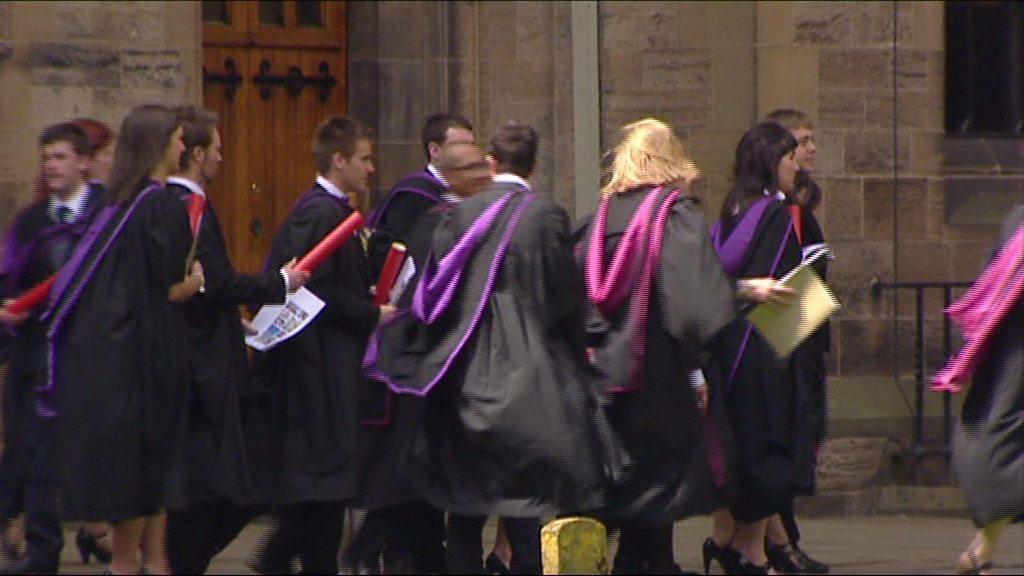Universities and Brexit: A degree of uncertainty
- Published
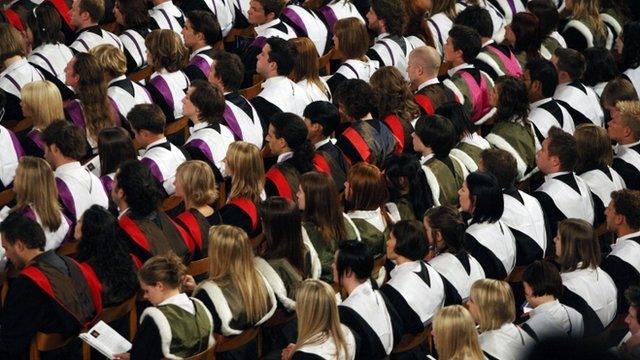
The graduation season is all but over, and those attending the ceremonies have been struck by the high proportion of be-gowned foreign students collecting their parchments.
This week's Audit Scotland report into the state of Scotland's universities draws the evidence together.
It raises some big questions about the sustainability of the current model for funding higher education. It also draws attention to a neglected part of the heated debate about immigration.
And it chimes with a new report from the Fraser of Allander Institute, urging politicians of all hues and parliaments to review all their economic thinking in the wake of the Brexit vote.
The massive challenges aren't ahead, they say - they're already here.
And one of the points they make is about that student question; how to make Scotland an attractive destination for international recruits?
Fee subsidy
Universities have become a vital part and strength of the Scottish economy, but there's a risk of complacency around the policy choices required to keep them there.
Auditor-General Caroline Gardner has pointed out that teaching and research are being cross-subsidised by sources of income that may not continue at current levels.
While government funding per student is squeezed, much of the shortfall is made up by the lucrative business of attracting foreigners to study for Scottish degrees.
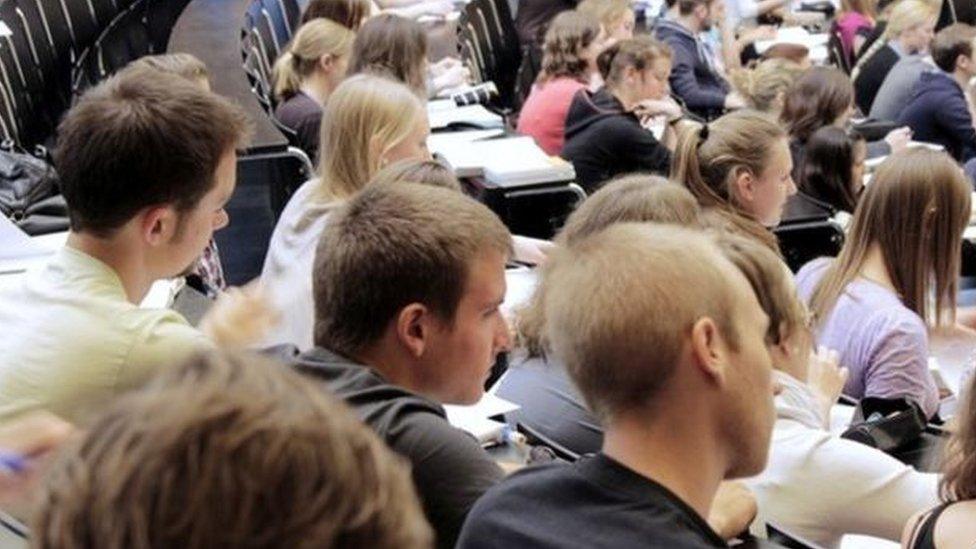
The number of EU students studying in Scotland rose 97% in the decade to 2014-15.
That can be largely explained by the Scottish government paying tuition fees (unless you're from England, Wales or Northern Ireland. It's an EU thing - EU citizens from other countries have to be treated in the same way as those in Scotland, but not those from other parts of the same country).
The number from outside the EU, who pay hefty fees, was up 58%. So by 2014, there were 20,800 EU/non-UK students in Scottish higher education, and 29,200 non-EU.
Along with other UK students, the share of those with homes outside Scotland has risen from one in four in 2005-06 to one in three two years ago.
Ancients exposed
What does this mean for income?
In the decade to 2014-15, cash terms income from non-EU tuition fees rose from £140m to £438m. The growth rate was even higher in the four oldest, "ancient" universities - St Andrews, Glasgow, Aberdeen and Edinburgh - up in real terms by 190%.
In 2014, the report shows there were more than 7,600 Chinese students in Scottish higher education.
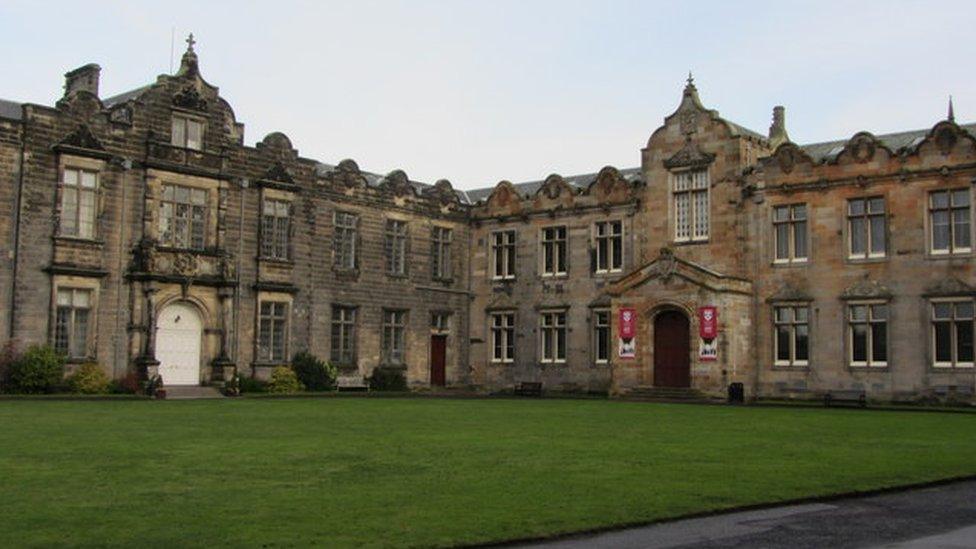
St Andrews University had a high growth rate
The next biggest nationality was 4,100 Americans, up 22% in five years, and then German, Irish and Nigerian.
Indians are big spenders on higher education outside the sub-continent, but numbers have fallen 57% to 1,400, in only five years.
They have been put off by British attitudes to issuing visas, by the high profile given to reports of the murder of an Indian student in Salford five years ago, and changes in the exchange rate can be a help or a hindrance to this bit of trade.
Fickle market
The market is a fickle one. While British universities offer prestige, they're competing with heavily-marketed competitors in English-speaking countries. Other countries make it more attractive by throwing in a work permit for perhaps a couple of years.
That way, you can make the direct link from your hard-won skills and knowledge and their practical application.
You can make valuable contacts to take back to your home country, and you can be of additional support to the country in which you've studied.
That is in an economic sense, but also offers Britain significant "soft power" in influencing foreigners' thinking about the country.
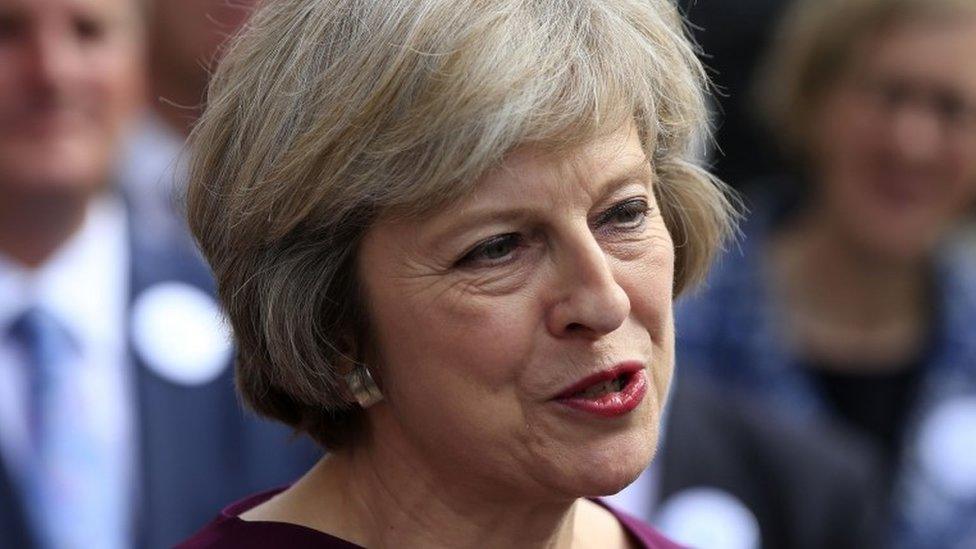
Theresa May sees international students as immigrants
Scotland had such a "fresh talent" arrangement with the Home Office immigration team, but it was ended by the incoming UK government in 2010.
There was pressure exerted for relaxation of student visa rules and work permits by former Lib Dem business secretary Sir Vince Cable, who was responsible for universities until last year, and also from George Osborne at the Treasury and from David Cameron.
The universities were lobbying on it too. But there was an immovable object in the way of such change - the Home Secretary, one Theresa May.
The front runner to become next prime minister continues to see international students as immigrants, and they are counted as such. Apparently, this is in line with international statistics standards.
This responds to security worries about migrants entering Britain on student visas, some of them to "study" at bogus colleges, and many staying after courses have finished.
There have been moves to crack down on visa application abuse. The number applying to pursue further education courses fell sharply after 2011, while visas for university continued to climb past 160,000 per year.
Migration watched
However, this means that the high-earning business of attracting legitimate students to real universities runs counter to the (failed) UK government policy of reducing net immigration numbers.
The Office for National Statistics examined this in some detail earlier this year, looking at the UK as a whole.
It found the net migration meant 192,000 overseas students in the UK in 2014-15, and 24,000 UK residents going abroad to study. The UK was the second most popular global destination, after the USA.
EU students can currently come and go, without any controls. Those who go to universities in England and Wales have to pay fees, so these are less attractive than the option of Scotland.
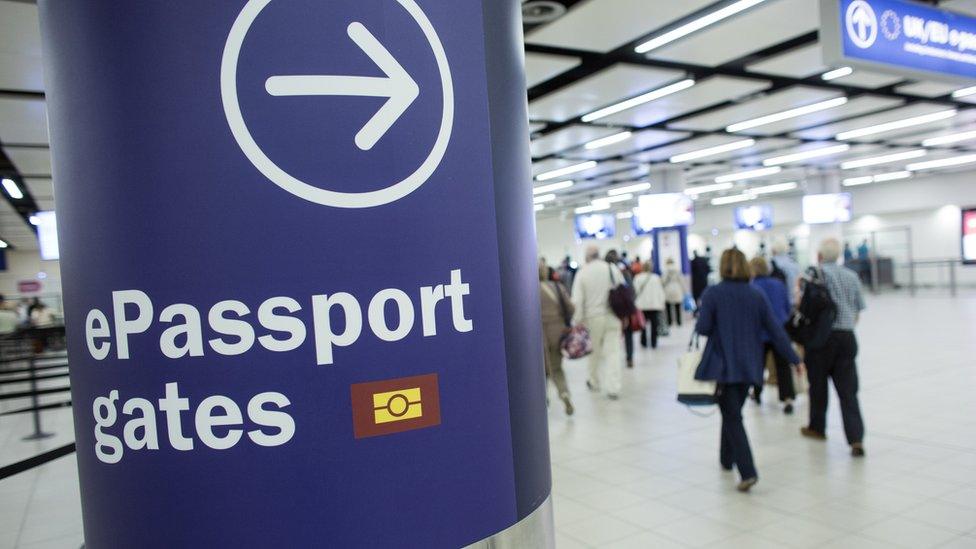
Non-EU students need visas, and around three-quarters of international students in the UK in 2014-15 were non-EU nationals.
So the net figure for migrating students in 2014-15 was 168,000, which is almost exactly half the total net migration figure for last year.
By excluding students, and treating them as a positive export earner, the government would put a big dent in the problem it created with its immigration target.
The complication is that the numbers are not that reliable. Official figures repeatedly show a significant gap between students arriving and students departing, which most are expected to do when they complete their courses.
This is not easily explained. Some go on to post-graduate courses, some find jobs with a sponsoring employer, some overstay their visa and a few get married to UK nationals.
The gap is highlighted by the campaign group Migration Watch, suspecting the student visa system is being widely abused. The ONS acknowledges that its statistics, based on a survey of travellers through British ports of entry, need to be improved.
Brexit effect
The Audit Scotland report was drawn up before the referendum result. It suggested that dependence on foreign student income was a risk that universities needed to manage.
The Indian market has already declined sharply. Slowdown in the world economy, and particularly in China, could add to that effect.
Conversely, cheaper fees, once charged in weakened sterling, may boost fees income by making Britain more attractive.
Either way, the market is bound to change, and significantly, once Britain splits from the European Union.
But the perception in the market is already changing, as potential applicants look at Britain, with little clarity about their future status, and a national vote widely perceived as telling foreigners that they're not welcome.
That message is also going out to internationally-mobile research and teaching staff.
And as both Scotland and the UK punch well above their weight in attracting research funding from the European Commission, that makes for multiple sources of uncertainty for university finance directors.
- Published8 July 2016

- Published7 July 2016
